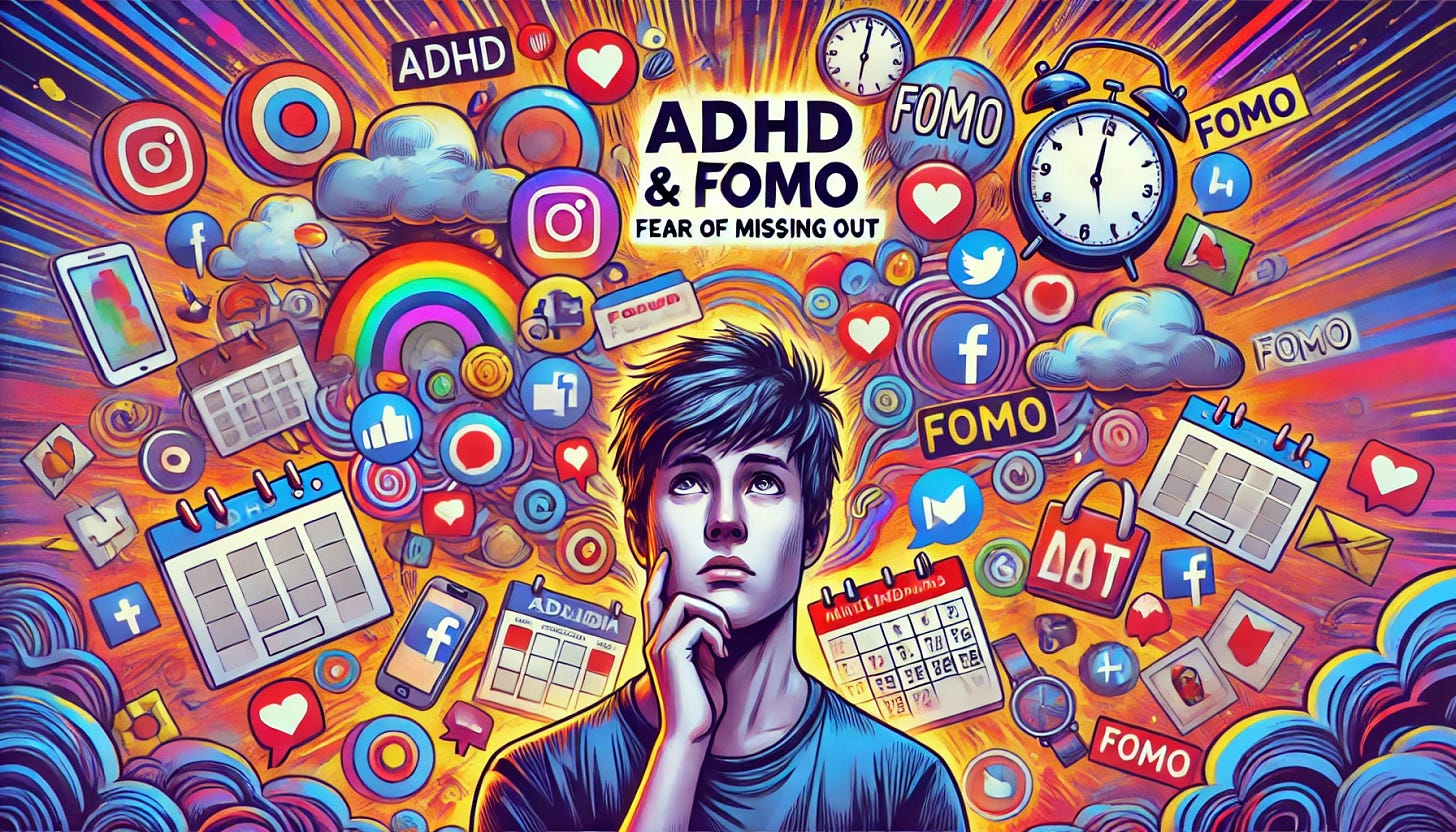FOMO: The ADHD Experience
Fear Of Missing Out, or FOMO, has become a common part of our digital lives. It's that annoying feeling that something exciting is happening elsewhere while you're stuck in your routine. For those of us with ADHD, this feeling can be especially intense.
Hyperfocus and FOMO
A hallmark of ADHD is hyperfocus. This ability to dive deeply into a task can be a …


